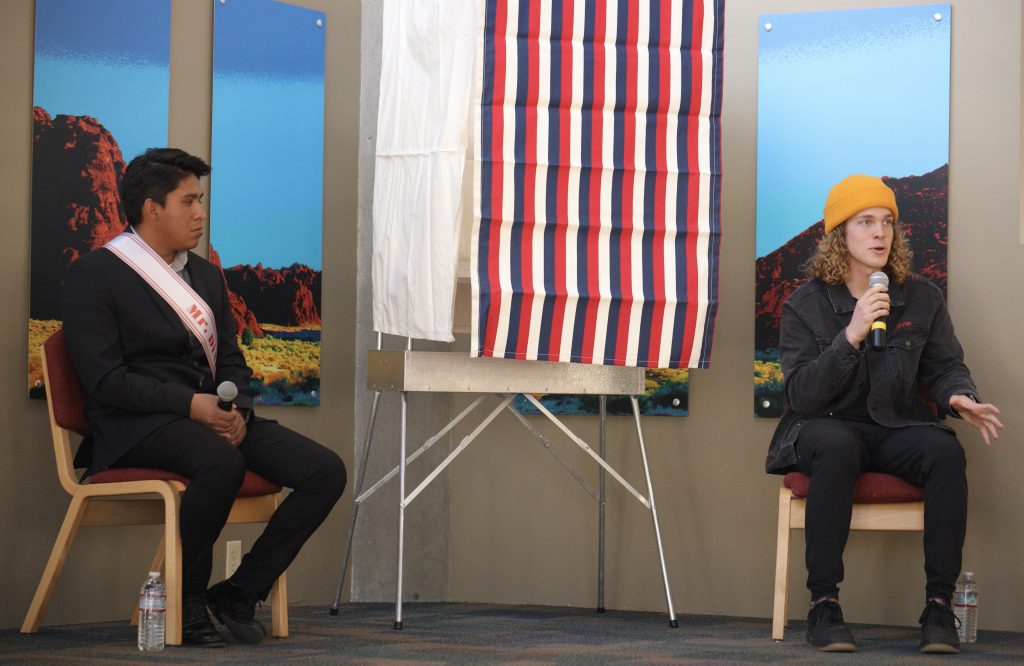It’s different than tutoring, but faculty say it’s just as effective.
Unlike one-on-one sessions with tutoring, supplementary instruction provides more of a group study session-like vibe, giving students a new additional learning resource led by students on Dixie State University’s campus.
Instead of focusing a specific student who may be struggling, supplementary instruction targets specific courses that have high failures rates, said David Roos, assistant vice president of student success and co-curricular assessment.
Roos said faculty is targeting the most difficult courses this semester for the supplementary instruction sessions: Biology 1010, Biology 1610, Biology 2320, Biology 2420, Chemistry 1210, Chemistry 2310, Computer Science 1400, Computer Science 1410, Math 1210, Math 1050, Math 1000 and physics.
“Some courses, to be honest, lend themselves more to [supplementary instruction] than others,” Roos said. “So, [it targets] courses that have problem-solving when you’re learning a topic.”
The SI sessions are hosted by SI leaders, senior-level students who have passed and know the material accurately, Roos said.
Heidi Tasso, director of the student success center, said the job of the SI leaders is to attend the class they have been assigned to and also go to the sessions to help students.
“The [SI] leader guides [students] into kind of figuring it out themselves,” Tasso said.
SI leaders are recommended by their professors and are hired into the position, Biology Adviser Douglas Sainsbury said. They get paid $10 an hour and work 10 hours a week, including sitting in the class and hosting the sessions.
Sainsbury said he’s involved with choosing the SI leaders by looking up their academic transcript, talking to their professor to make sure they did well in the course, and making sure they have leadership skills.
DSU did not invent supplementary instruction, Roos said, but faculty felt it was needed at DSU.
According to the University of Missouri-Kansas City’s website, the supplementary instruction program was implemented first in 1973 and used at universities around the world.
“For students struggling in those sections and those courses, they should want to do this,” Roos said.
For more information on the supplementary instruction program, visit dixie.edu/studentsuccess.


